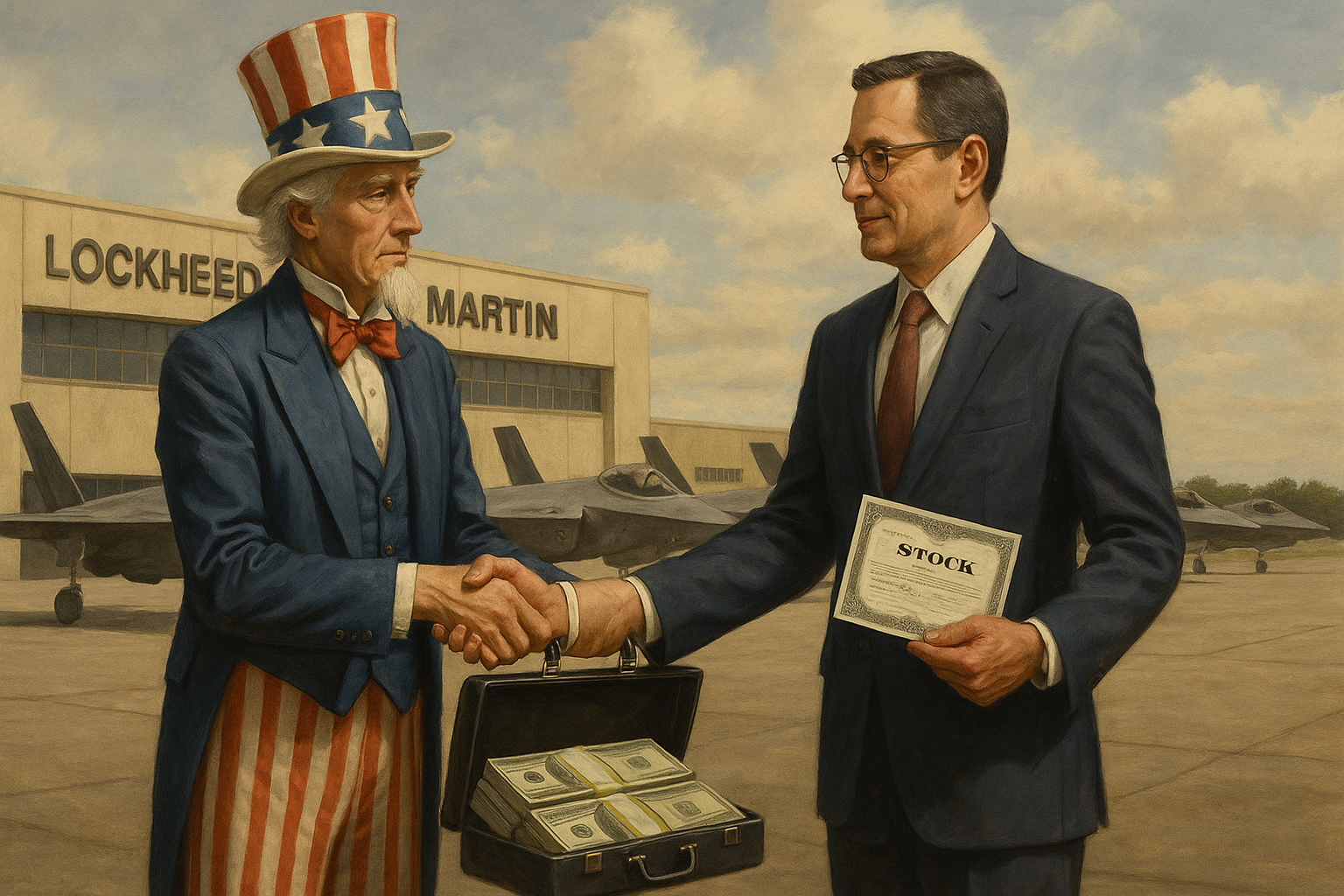In what might be the most radical Washington rethinking since someone suggested "maybe we need fewer lawyers in Congress," Commerce Secretary Howard Lutnick has floated the idea that the U.S. government wants to cozy up to defense contractors. Not just as a customer—but as an investor.
Following the government's eyebrow-raising 10% stake in Intel, Lutnick casually mentioned on CNBC that defense titans like Lockheed Martin could be next in line for a government investment love letter.
"Oh, there's a monstrous discussion about defense," Lutnick said Tuesday, dropping this bombshell with all the nonchalance of someone commenting on the weather. I've watched enough political interviews to know when someone's testing the waters, and this felt deliberate.
Let's back up a second. The U.S. government—the same one that's spent decades preaching free markets and privatization like a revival tent sermon—is suddenly interested in partial nationalization of its defense supply chain? That's not just a policy shift; it's a philosophical earthquake.
Lutnick specifically called out Lockheed Martin, saying they "are basically an arm of the U.S. government" while praising their "exquisite munitions." (Exquisite? Really? Are we shopping for fine china or weapons systems here?)
The economics of the traditional model have been simple enough. Government pays contractors massive sums to build weapons, contractors make hefty profits, shareholders get dividends. It's capitalism... but weird capitalism with a single customer calling all the shots.
But now? The Intel deal changed everything. Uncle Sam handed over $8.5 billion in funding but—here's the twist—took a 10% equity stake in return. That's not just business as usual. That's moving in together.
I've covered defense contracting since the early 2000s, and this represents a seismic shift. Think about it. If taxpayers are bankrolling a huge chunk of these companies' operations AND providing guaranteed revenue streams, why shouldn't the public get a slice of the pie when things go well?
Companies like Lockheed already function like government appendages anyway. Around 70% of their revenue comes from government contracts. They operate in a bizarre parallel universe of limited competition, classified technology, and decades-long procurement relationships that would make normal businesses drool with envy.
But here's where it gets messy. If the Pentagon owns equity in the very companies it's negotiating with... well, that's complicated. Will procurement officers suddenly have competing priorities? Get the best deal for taxpayers, or boost the government's investment? And what happens to stock prices when Uncle Sam becomes both sugar daddy and part-owner?
Then there's the international angle. Imagine being a foreign government buying weapons from a company partially owned by the U.S. government. Talk about awkward Thanksgiving dinner conversations.
Look, government ownership in private companies has traditionally been viewed in America with the same enthusiasm as a root canal. But something's changed. There's this remarkable bipartisan shift toward industrial policy happening right under our noses. The CHIPS Act. The Inflation Reduction Act. Now this.
The rest of the world isn't standing still either. China's government has its fingers in every industrial pie. Europe is throwing money at semiconductor development. The era of letting markets run wild seems... over?
For investors, this creates a whole new ballgame. Government equity stakes might cap your upside, but they could also provide a floor. After all, the Pentagon isn't exactly known for demanding aggressive cost-cutting or obsessing over quarterly earnings.
When pressed for details, Lutnick went full Washington, deflecting that this was really a question for the Secretary of Defense. Then he added, cryptically, "there's a lot of talking that needs to be had about how do we finance our munitions acquisitions."
Translation from bureaucrat-speak: We're rethinking the entire relationship.
I guess after dropping $850 billion annually on defense—enough money to fund NASA for decades or fix America's crumbling infrastructure—someone in government finally asked: "Shouldn't we be getting more than just fancy weapons for all this cash?"
Uncle Sam, tired of paying for dinner and never getting so much as a goodnight kiss, wants some equity in the relationship.
And honestly? Maybe it's about time.
